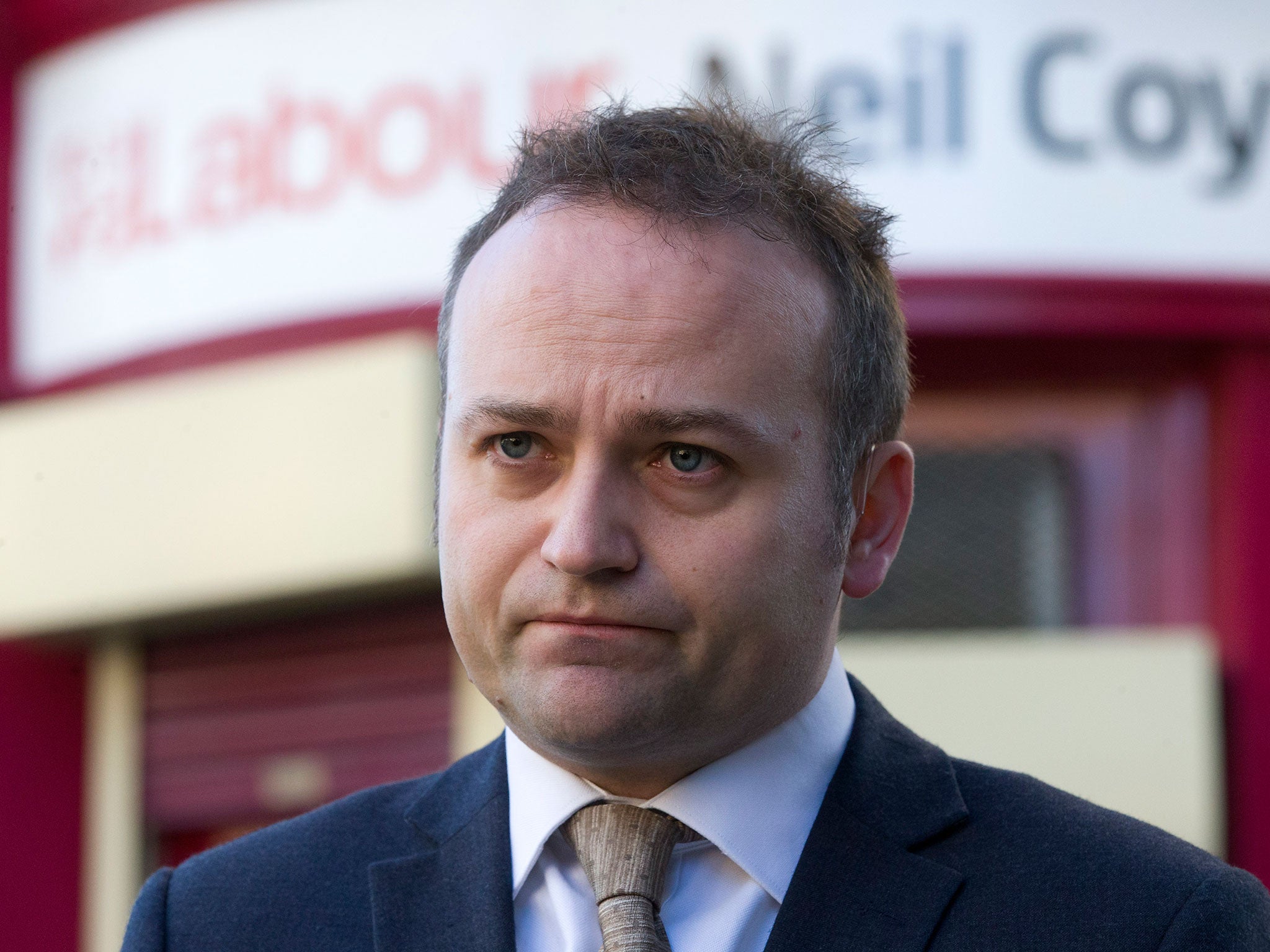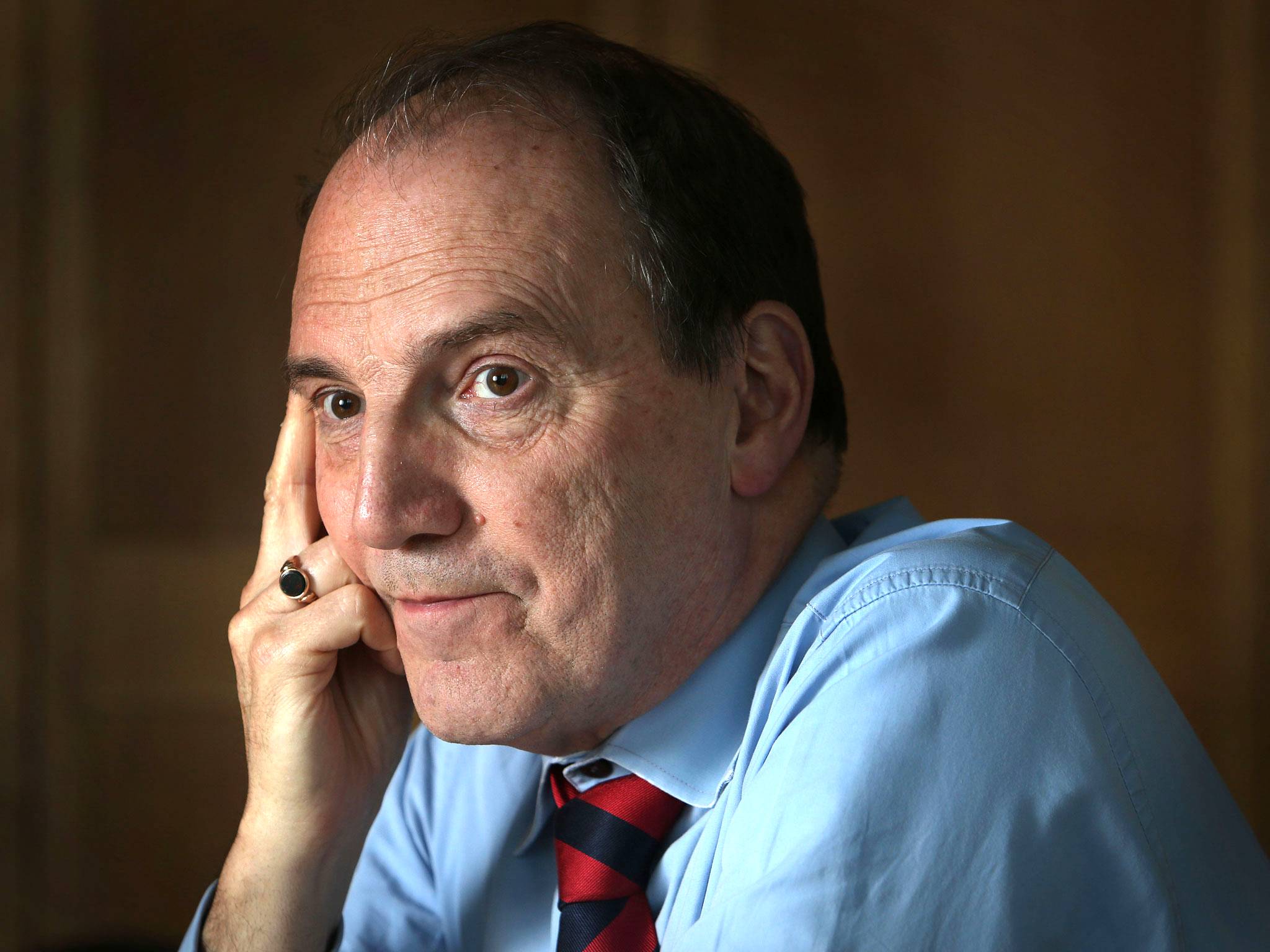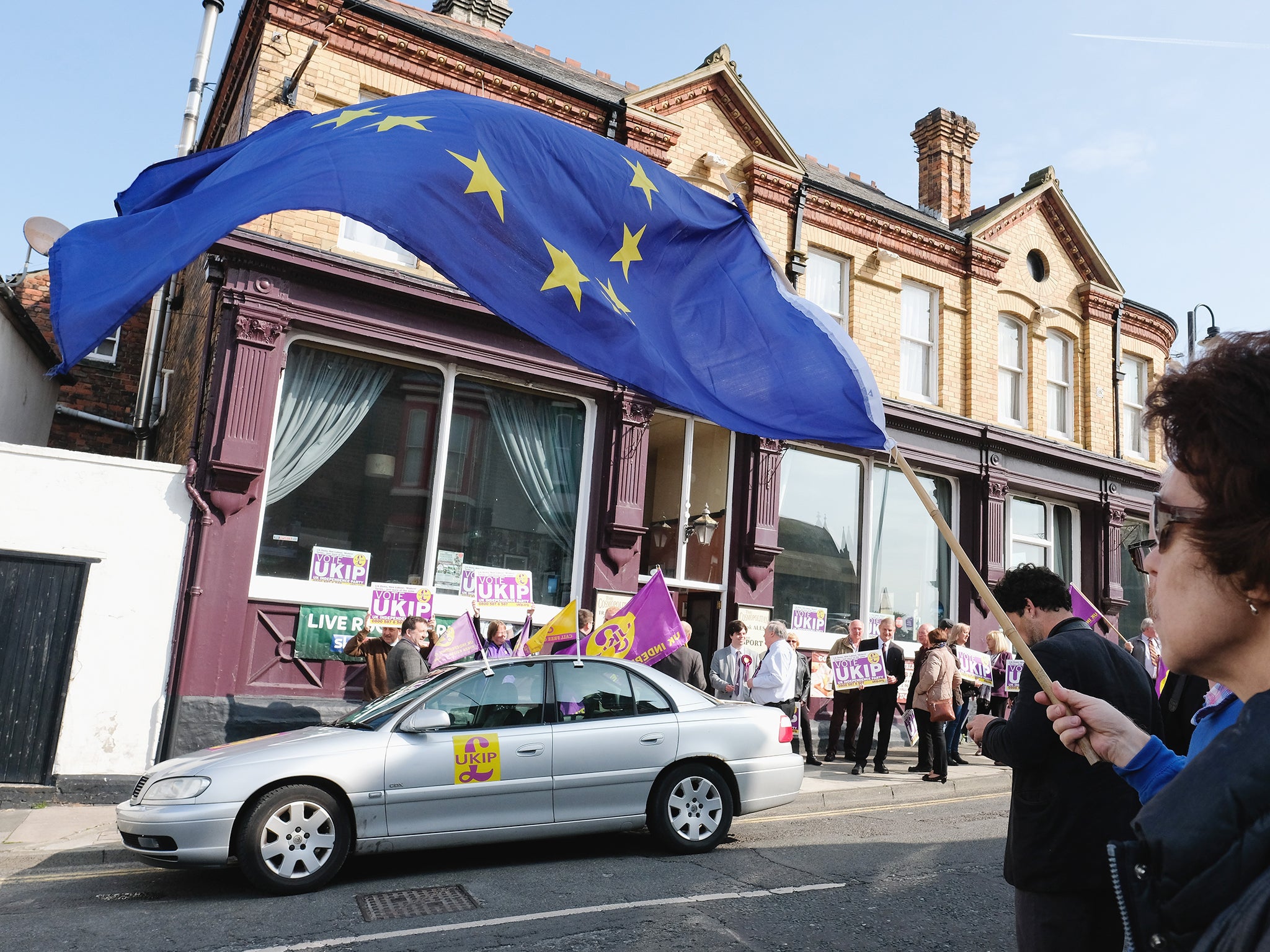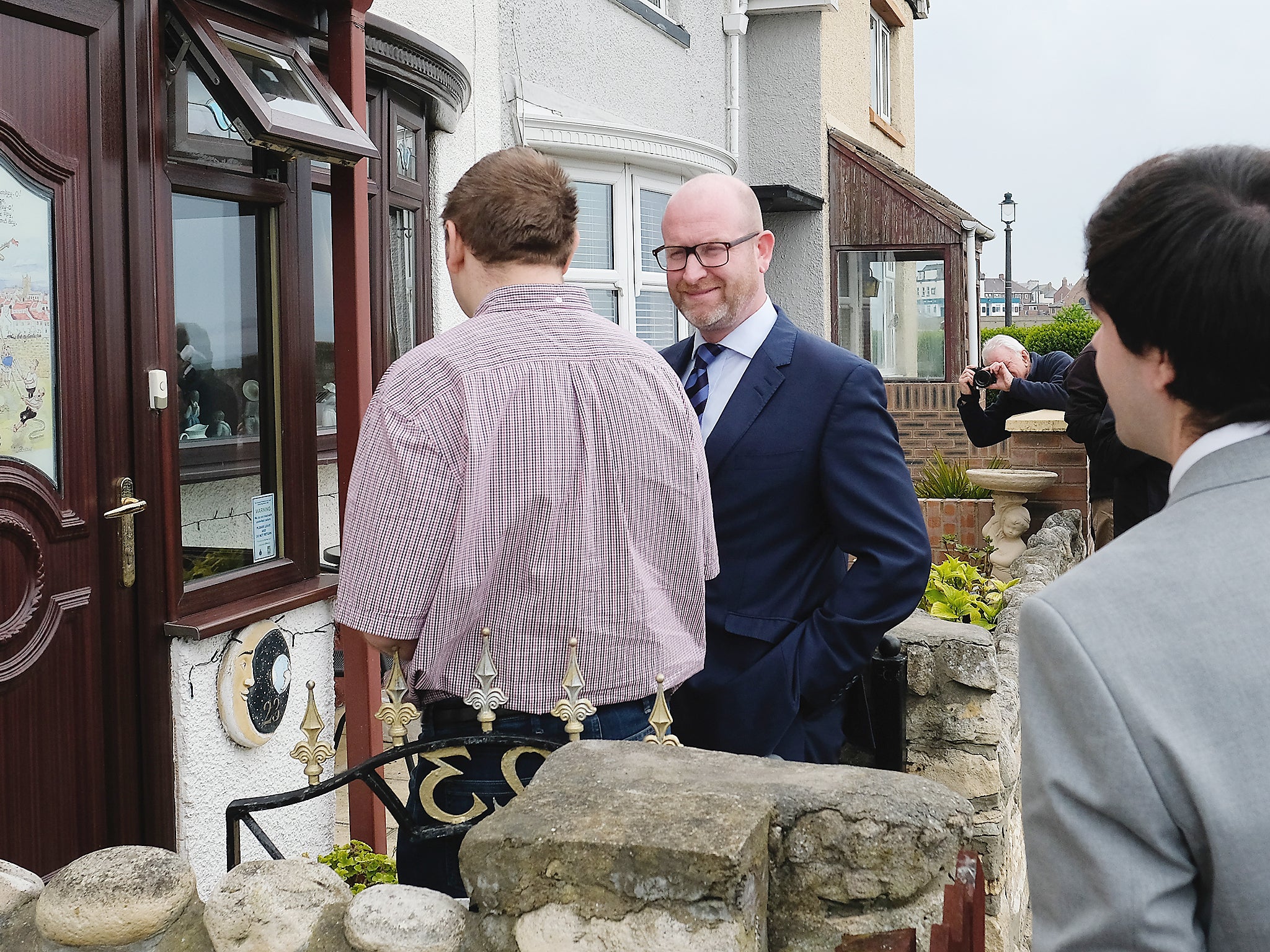How Labour hopes to square the Brexit circle in impossible election challenge
We asked Labour's candidates in Remain-voting Southwark and Leave-voting Hartlepool how on earth the party can hold on to both

You don’t actually have to give Lynton Crosby millions of pounds to know that political parties win when they keep things simple, even if it would appear to help.
In a crowded field, that is arguably the Labour Party’s gravest problem. In messaging terms, the Conservatives whittled themselves down to a single person and a single phrase long ago.
Meanwhile, the complexity of the challenge facing Labour requires the party to transform itself into an electoral tundra. Simultaneously at risk from pro-EU Liberal Democrats in their London heartlands, and from Ukip and and the Conservatives in northern seats they have not lost in decades.
Every candidate, in every part of the country, will need to have different things to say. Every battleground is different. Every fight a bespoke fight.
Attempts to quantify what might happen vary wildly. But if a degree of dignity is to be maintained it’s arguable that 72.8 per cent Remain-voting Bermondsey and Old Southwark in the south, and 69.6 per cent Leave-voting Hartlepool in the north will need to stay red. In the former, the Lib Dems eye a comeback. In the latter, local elections earlier this month showed the Ukip vote is holding up better than anywhere in the country.
It’s a formidable task.
I asked Labour’s candidates in both places, Neil Coyle and Mike Hill, if they were confident of victory. Mr Coyle said he was “optimistic”. Mr Hill said “hopeful”.
But how do they square such a formidable electoral circle?
Forty-four year-old Coyle had not yet been an MP for two months before he decided to make himself one of the required 36 Labour MPs to sign leadership nomination papers for an obscure long time backbencher by the name of Jeremy Corbyn. When Labour was hammered in local elections less than a year later, he wrote an article for the Guardian saying he “now regretted that decision”. It was co-authored with his friend Jo Cox. Blair’s old strategist John McTernan chose less hesitant language. He called them both “morons”.
At his campaign launch in a room above a pub off London Bridge, Coyle’s strategy appeared to start and end with visceral hatred of the Lib Dems.
Simon Hughes, a Lib Dem grandee, if such a thing is possible, is standing again, having held the seat for years until his voters deserted him for Labour and Coyle in 2015.
Coyle’s hopes are two-fold: That the “betrayed” Lib Dem voters of 2010 have not yet forgiven them. And that anyone who subsequently might feel betrayed by Labour over Brexit will recognise they have not been betrayed by him personally.
“I’m not going to distance myself from what I said about Jeremy Corbyn,” he told The Independent, as local volunteers put out sausage rolls on tables covered with paper tablecloths. “We need better leadership.

“But it is my name on the ballot paper, not Jeremy’s. Voters have a straight choice between me and Simon Hughes.
“Simon Hughes broke his pledge with the electorate here, by not voting against tuition fees, voting eight times for the bedroom tax, which four thousand people are paying in this constituency. There are families denied access to justice as a direct consequence of his cuts to legal aid, for which he was the minister. I speak to them all the time.
“They turned against the Lib Dems here in 2015 because Simon Hughes was working for the Tories and not for the people of Southwark.
“In 2015 I promised I would never vote for anything that would harm this community. I have kept that promise, even when it has meant voting against the Labour whip in the House of Commons.
“I’ve kept consistent. I campaigned against leaving the European Union. None of the facts or the evidence have changed. I voted against triggering Article 50. I voted against the Brexit Bill.”
He did indeed, but his party voted for it, in overwhelming numbers, a fact that is not lost on the people of Southwark who have, in recent years, not needed too many excuses to vote Lib Dem. You would think the yellow Brexit siren call would be overwhelming, but Coyle’s views on this are intriguing, and not unreasonable. He actually blames the Lib Dems for Brexit itself.
“Ask the people here who they saw, out on the streets, campaigning for Remain. They saw me. I was out every weekend, every night. They didn’t see Simon Hughes. But it’s not just about that.

“The Lib Dems cannot pretend for a second that their contribution to the coalition did not affect that referendum result. The proxy for that result was immigration. It was people saying, ‘I can’t get a GP appointment for me and my family and my kids. I can’t get that.’ So there was a blame game, and cuts in public services contributed to that blame game. And who was cutting those services? The Lib Dems were there doing all that, right behind the Tories. Five years of coalition cuts contributed to that referendum result. There’s no doubt about that.”
Mike Hill, a library worker turned trade union official, has lived in Hartlepool for 18 years.
He watched Labour’s decimation in the local elections with horror, not least the horrendous defeat to the Conservatives in the Teesside mayoralty contest, for which his constituency forms part of the electorate. But inside the shockingly bad news, there was something that could arguably be re-badged as hope.
“Labour won here, Ukip second. Tories third,” he said. Elsewhere, all over the country, Ukip voters jumped ship to the Conservatives in overwhelming numbers. If Ukip hold on to their support in Hartlepool, it could be sufficient for him to hold on to the narrow lead his predecessor Iain Wright maintained at the general election in 2015, where Ukip came frighteningly close to stealing a seat that has been Labour since the 1950s.
None of this is to say, however, that Hill doesn’t have an overwhelmingly thankless task on his hands. Labour is supporting Brexit, of course, but they are late to a cause that has come to usurp all others around here.

“My campaign is all about being positive about the town,” he said. “My campaign is about championing the place. It is about celebrating the place and taking the town forward. Showcasing Hartlepool, its infrastructure, its jobs, unique industries like engineering. It’s basically a positive approach to supporting aspirations.”
It was in a Hartlepool chippy of course, where a notorious New Labour myth was born. The town’s last but one MP, Peter Mandelson, was out campaigning when he is said to have ordered cod and chips, pointed to the mushy peas and said, “And I’ll have some of that guacamole please.”
The story’s not true, but that it is so well known says much about Labour’s historic divisions. It was, in fact, an American intern, working with senior Labour figures, who did the deed. But it was Neil Kinnock who spread the tale far and wide. Back then, Labour’s internal conflicts were almost jovial. Their nature has not changed, only the volume.
“It’s a town that voted 70 per cent to leave,” says Hill. “I acknowledge that’s the will of the people of Hartlepool. What we need is strong engagement with the EU as Brexit takes place. We need to use the Brexit negotiations to protect the interests of the workers.
“What we’re getting on the doorstep and what we’re going to get more of, is people who voted for Brexit, but who didn’t vote for a Brexit that would damage their economy. They didn’t vote for a Brexit that will impact their jobs and livelihoods. We need a Brexit that is in the best interests of the people of Hartlepool.”
I asked Hill if Brexit is in the interests of the people of Hartlepool. The pause is so long the election may well have been and gone.
“We need to approach Brexit in an aspirational sense,” he eventually said. “That’s the best approach to it.
“As a northern town we’ve benefited greatly from EU investments. We’d miss that funding if we didn’t find alternatives. But we aspire to find alternatives. If you look at growth in industries, like the dismantling of offshore oil platforms, which is huge in Hartlepool, like the nuclear industry, like engineering, like aeronautical engineering, the alternatives are there.”
For Labour to win in Southwark, Coyle needs voters to hold their nerve. He makes the point that, for those considering going back to the Lib Dems, whose messaging on Brexit appears to be less ambiguous, there is no guarantee they will not be betrayed again.
“People in this constituency know my position and know where I stand.
“I hope voters know that it’s my name on the ballot paper. The Lib Dems cannot be trusted. [Tim] Farron has been careful in his wording. He has not ruled out coalition with the Conservatives. That party could conceivably be in a position where it has to support Brexit.”
There is, of course, a real risk that his could be one of one of the more extraordinary parliamentary careers of recent times, of which there will certainly be a few. To be returned to Parliament with a realistic expectation of serving a Labour government, and to then be chucked out again two fifths of the way through a supposedly fixed five year term, having borne witness to political pyrotechnics on a scale rarely seen.
“It’s been,” he pauses. “It’s been… Ugh.” It is a sigh to end all sighs. His shoulders almost strike the floor. “Jo Cox’s murder was the worst day of my life. The referendum was a disappointment. To have seen a country turn in on itself, and not to have facilitated within families the conversations that could have changed it – that was a big disappointment. Then we’ve had internal problems, and people within the Labour Party trying to smear and intimidate me.

“Things could have been better. But I really do genuinely enjoy the job.”
The local election results on 4 May left Hill uncertain quite who it is he has to beat on 8 June, Ukip or Conservative. Since then, it has been suggested Ukip leader Paul Nuttall should have stood in Hartlepool, not Boston and Skegness, given the now high likelihood it will be Hartlepool that returns the highest Ukip vote in the land. But Mr Hill has his thoughts on that.
“People here want a local candidate,” he says. (It is almost amusing to consider that the most Eurosceptic corner of the country had, for decades, Mandelson as its MP.)
“The Ukip candidate is a local councillor. That’s why it’s holding up. If you ask me who I need to beat, Ukip or the Tories, it’s both. We need to beat both.
“I hope the voters will listen to our policies, and back a local candidate whose only aim is to champion their views.”
One thing is certain. In both places it will be close. Southwark will decide who has betrayed it the least. Hartlepool will decide if, after more than half a century of monogamy with Labour, whether it is still the party that stands for who it is.
Both are hoping for the best. But it is hope, not confidence.
Join our commenting forum
Join thought-provoking conversations, follow other Independent readers and see their replies
Comments
Bookmark popover
Removed from bookmarks